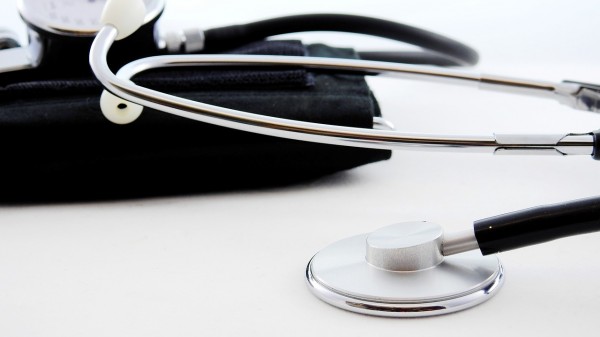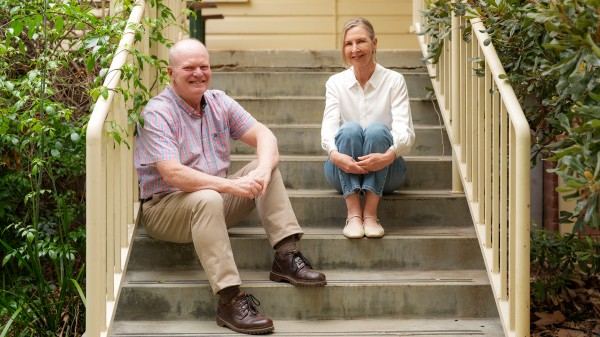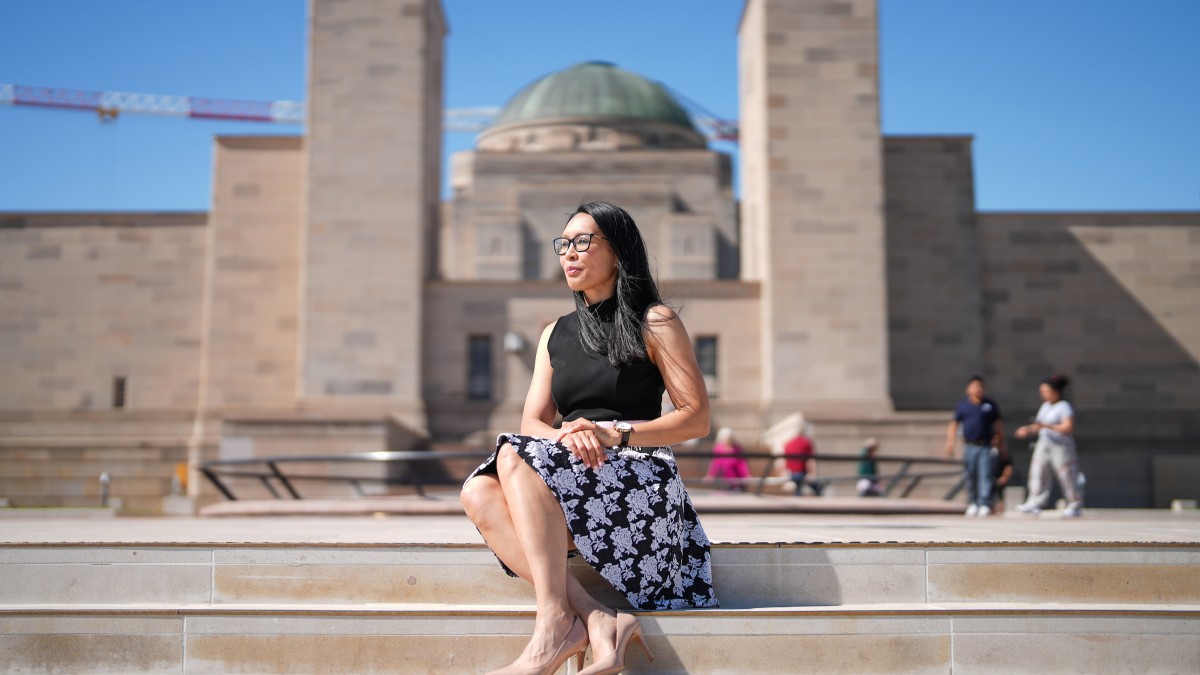For 20 years Arthur Hodge battled debilitating pain, misdiagnosis and unanswered questions. A wheelchair user due to complications from arthritis, Hodge had been admitted to Canberra Hospital with a myriad of severe symptoms countless times. However, the cause behind his complex illnesses remained a mystery.
Willing to try anything to restore his health, Hodge was referred to Associate Professor Simon Jiang and team in 2017 for a new approach to diagnosis and treatment. Based at the John Curtin School of Medical Research at ANU, the Jiang Group, as the research collective is known, has pioneered an approach to target treatment of immune disease to a genetic and cellular level.
This personalised medicine program has proved transformational for Hodge and other patients like him, bringing healing and hope in the face of overwhelming health challenges.

“Since being a patient of Simon’s, a lot of painstaking work and effort has gone into tracking down the cause of the known and unknown problems I faced,” Hodge says. “It’s uncovered an enormous amount and offered an escape from this illness.”
Jiang and his team’s dedication to uncovering the genetic roots of Hodge’s ill-health revealed that he has a unique mutation in the gene known as ITK (IL-2-inducible tyrosine kinase). Not only was this a world first, connecting ITK to the development of autoimmune disease, Jiang’s team replicated the ITK mutation in the lab, allowing the researchers to demonstrate exactly how the mutation resulted in Hodge’s immune system causing his illness.
Conventional management of autoimmune and kidney disease assumes the causes are similar for everyone. As a result, treatments may not be effective and can have significant side effects. That’s why the Jiang Group is focused on identifying disease-causing genetic variants in individuals. The researchers then leverage this understanding of genetic, molecular and cellular mechanisms driving illness to develop personalised treatments.
Their work identifying the ITK gene mutation and developing a highly targeted course of treatment have been instrumental to Hodge’s recovery. He is now healthier and more mobile — no longer relying on his wheelchair and spending more time gardening.
Wife and primary carer Lorraine Hodge says the impact this treatment has had not just on her husband, but on the whole family, is clear.
“It’s been a real battle for the last 20 years, trying to work out what was causing Arthur to be so sick,” she says. Lorraine recalled Arthur needing multiple infusions and daily injections, with almost all Arthur’s time being taken up with treatments at hospital.
“We went to renal people, we went to cancer people—they all were trying to find out what was making Arthur so sick in so many different ways. He didn’t just have one thing wrong with him, he had multiple things wrong with him.
“When we met Simon and his team, it was a turning point. Arthur’s got a lot more quality of life than he used to have — 100 per cent more quality. Now our main objective is to stop our children and our grandchildren from going through what we have been through.”
A family’s journey to healing
The benefits of personalised medicine programs extend far beyond the individual patient—they embrace entire families. For the Hodges, this has led to the discovery that three of their four children, and their 15-year-old grandson, also possess the ITK mutation.
In their daughter, Emma Gilmour, the gene was found to be highly active.
“For many years, I’ve had pain everywhere and it was always put down to being overweight or mental health,” Gilmour says. “It was never considered that something could actually be wrong until Simon came into the picture.”
Through his commitment to understanding the cause of illness and developing tailored treatments, Jiang is rewriting the narrative for patients like the Hodges.
“There are still challenges that we face, but we’ve got hope that we are heading in the right direction now, we’re not just milling around in the doldrums,” Gilmour says.
For Jiang, who is also a kidney specialist at Canberra Hospital, the most exciting aspect of this work has been the ability to help transform people’s lives.
“We have quite a number of patients around Australia in whom we have been able to identify the genetic and cellular cause of their illness,” Jiang says. “In a significant number of individuals like Arthur and his family members, we have also been able to recommend treatments, keep them out of hospital, and control illnesses that conventional therapies were otherwise failing to address.”
With every success story, mainstream awareness of personalised medicine grows stronger and the call for increased investment and support for it grows louder.
“The issue is that when we are dealing with increasing numbers of patients around the country, research funding isn’t always able to keep up with that high load of patient care,” Jiang says.
Fortunately, the Jiang Group has received philanthropic support, which has been instrumental in keeping the lab running. Thanks to donors such as John Hindmarsh AM and Rosanna Hindmarsh OAM, it can continue to expand its personalised approach, offering hope to a greater number of patients.
“We’re pleased to support Simon and the team and delighted by the progress they’ve made already,” the philanthropists say. “It’s great to see Canberra and ANU at the cutting edge of the personalised medicine revolution, transforming patients’ lives.”
While Jiang’s expertise is in immune and kidney disease, the possibilities for personalised medicine are vast. With the right support, it can offer unprecedented care and the promise of recovery to patients facing complex health challenges.
Many stories, like this one, are only made possible by our generous donors. ANU researchers have the expertise to transform our world, but they need support to maximise the impact they can make. Find out more about the impact of giving to ANU.
This article was first published in the ANU Reporter.









